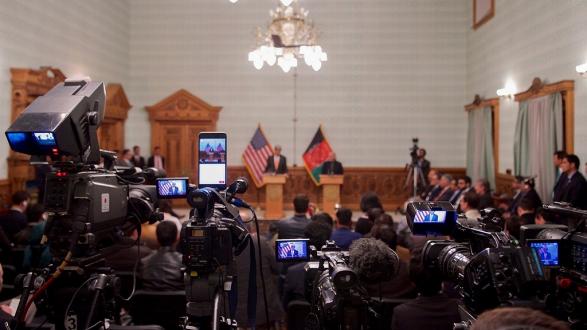When I was a young door-to-door salesman selling cable TV in places like Viroqua, Wisconsin, and International Falls, Minnesota, I learned a valuable lesson. The public – from Fort Francis, Canada, to Bakersfield, California – had an insatiable appetite for information and entertainment, whether it was seven new cable channels, fifteen, or even two hundred.
They wanted to choose. Some wanted first-run movies, others sports, and still others wanted more variety of news and information sources. Over the years, I found more and more potential customers demanding shows in Mandarin or Siberian, and some wanted more religious or alternate lifestyle channels. My life’s work was to give them choice.
For many of these voters this year, Donald Trump was their choice. He was not mine.
When I went into government in the Bill Clinton administration as the chair of the Broadcasting Board of Governors (the successor agency to the USIA), I found that public diplomacy was best served by making choices and a variety of opinions available to all the people of the world. They all wanted more entertainment and most wanted more news and information sources. First cable TV and satellite, then the internet provided this to citizens in countries with open societies and open governments, even if that news and information was critical of their President.
People want to make their own choices, not have government censors do it for them.
In closed societies with rigorous censorship, limited access to mass media, and curtailed internet freedom, life is more difficult for the public. But the same unassailable thirst is still there. Even in the darkest corners of the world, people have found ways around autocratic governments that try to limit the human desire for more choices.
This does not lessen the problems of open access to all types of messages, whether we are talking about pornography or hate. But in an open society with an open government and a free press, we accept the risks as much better than a closed society. People want to make their own choices, not have government censors do it for them.
President Trump should support this inalienable right of freedom of choice for all residents of the globe.
Donald Trump, despite his frequent criticisms of the press, must embrace open access to the internet and media without censorship as the next U.S. President. As Anne-Marie Slaughter wrote in the most recent issue of Foreign Affairs: "A U.S. grand strategy along these lines would advance U.S. interests by building an open global order composed of open societies, open governments, and an open international system." Alec Ross, a former State Department adviser, argues in The Industries of the Future: “Open societies that embrace openness will be those that compete and succeed most effectively.”
The people of Chengdu, Caracas, Cairo, or Minsk are no different than the people of Viroqua, Wisconsin, fifty years ago. They want choice. They want to make their own choices as to what to watch, what to listen to, and what to interact with. The majority of Wisconsin voters chose Donald Trump on Election Day. President Trump should support this inalienable right of freedom of choice for all residents of the globe.
____________________
The Honorable Marc B. Nathanson, Co-Chair of the Pacific Council Board of Directors, is the Chairman of Mapleton Investments, a diversified investment holding company. In 2012, Secretary of State Hillary Clinton appointed Nathanson as her representative to the Board of the East-West Center in Honolulu, Hawaii. He additionally served as Chairman of the Broadcasting Board of Governors during the Clinton and Bush Administrations.




